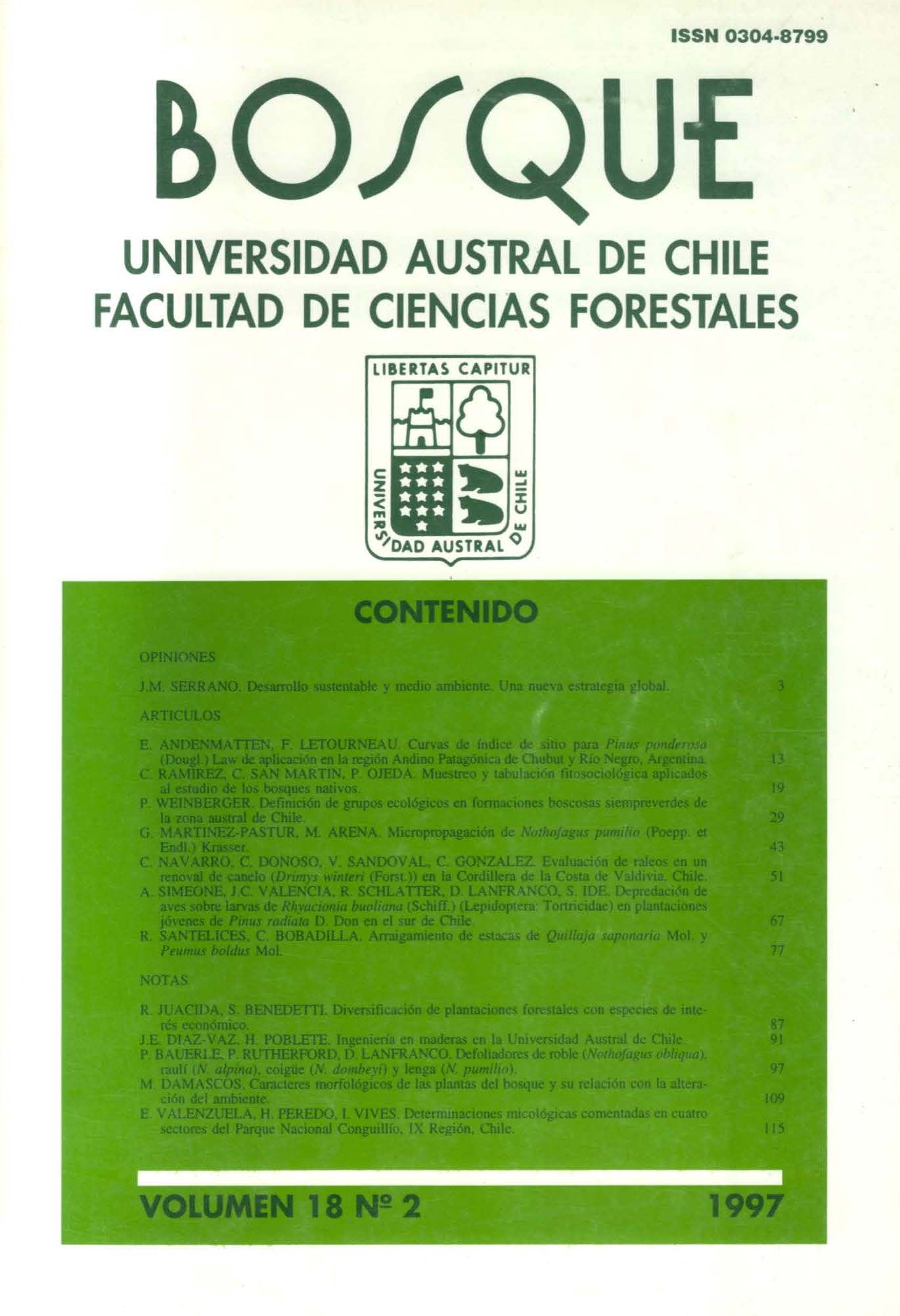Main Article Content
Dec 31, 1997
Abstract
The rooting capacity of Quillaja saponaria Mol. and Peumus boldus Mol. cuttings was studied. In Q. Saponaria, the effect of the application of indolebutyric acid and the region of the tree from which cuttings were obtained was evaluated. In P. boldus, only the effect of the application of auxin was studied.
The vegetal material was collected during the first days of September. It was kept in bottom heating beds under relativity controlled conditions of temperature and humidity in a plastic covered greenhouse.
Results show that Q. saponaria cuttings can be easily propagated after 4 months. Even when no clear effect of the application of auxin was observed, rooting occurred in 45% of the cuttings. The material taken from the medium and lower parts of the crown produced better results than cuttings from the apical zone, with a 41% rooting rate.
P. boldus cuttings can be propagated after 6 months. The application of indolebutyiric acid had no clear effect on rooting. It is possible to obtain rooting rates of 15%.


